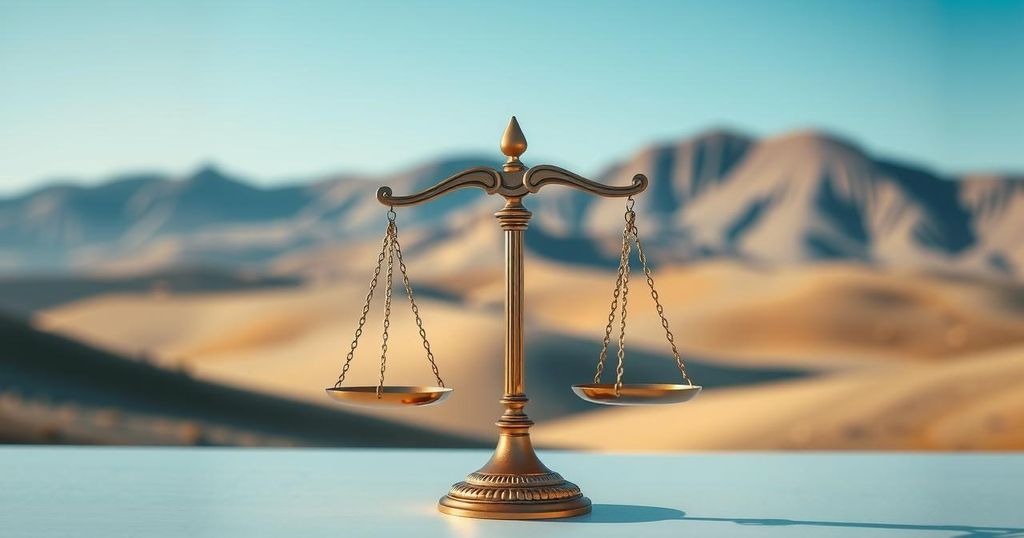President Trump has frozen U.S. aid to South Africa due to allegations of discrimination against white farmers following a new land law. Elon Musk supports claims of racist laws, arguing for the plight of white farmers, despite substantial evidence disputing these narratives. Experts indicate that proposed law changes may not be as threatening as suggested, emphasizing a need for a nuanced understanding of the socio-political context surrounding land ownership and violence in the country.
President Donald Trump recently signed an executive order that halts U.S. aid to South Africa, citing the country’s alleged discrimination against white farmers and what he describes as severe human rights violations. In a social media post, Trump stated, “South Africa is confiscating land, and treating certain classes of people VERY BADLY.” The executive order proposes resettlement for white South Africans whom Trump identifies as victims of racial discrimination.
The order follows the enactment of a controversial South African land law, supported by President Cyril Ramaphosa, allowing the government to expropriate land potentially without compensation. Trump’s stance aligns with Elon Musk’s views on South Africa, which the billionaire claims has “racist ownership laws” and accuses the government of facilitating what he perceives as a genocide against white farmers.
In terms of demographics, approximately 7% of South Africa’s population is white, yet they still occupy a large portion of land originally owned during apartheid, leading to significant economic disparities. Critics of the new Expropriation Act are concerned about possible disruptions to the farming industry and fears of violent land grabs reminiscent of Zimbabwe’s experiences in the 1990s.
Experts, including Ruth Law from the University of Western Cape, argue that the new law mainly clarifies existing powers rather than introducing entirely new ones. Lawmakers assert that the legislation does not equate to property confiscation, with Ramaphosa emphasizing that it will not lead to immediate unlawful dispossession of land. Furthermore, the law allows landowners to legally contest expropriation decisions in court.
While crimes against farmers do occur, official statistics indicate that white individuals are not disproportionately targeted in a country that struggles with high overall crime rates. In 2023, around 300 white-owned farms were attacked, resulting in 49 fatalities. Nonetheless, the total homicide rate suggests that white farmers face risks similar to other demographics. The South African government maintains there is no arbitrary land dispossession, insisting that their current laws are comparable to eminent domain laws prevalent in many countries, including the United States.
Musk has criticized South African ownership laws, portraying them as openly racist. This rhetoric has gained traction among a segment of white farmers claiming to face targeted violence. In response to Musk’s remarks, Ramaphosa and his administration have been accused of fostering an environment conducive to alleged genocide against whites, although many experts dismiss this as baseless.
Despite Trump’s efforts to aid white farmers, experts warn that cutting U.S. assistance could exacerbate conditions for impoverished communities, including the white farmers they intend to protect. American funding, particularly for AIDS relief programs, has proven vital in South Africa, and Trump’s reduction of foreign aid could jeopardize these critical health initiatives, with Health Minister Aaron Motsoaledi expressing alarm at the U.S. decision to suspend aid.
This article outlines the tensions surrounding South Africa’s new land law, the U.S. government’s response under President Trump, and Elon Musk’s involvement in the conversation about racial discrimination. The perspective that there exists a genocide against white South Africans is largely contested by experts, who point to broader socio-economic issues rather than race-based violence. Ultimately, the potential consequences of U.S. aid suspension pose risks to all South Africans, including the white farmers who are purportedly the focus of protection efforts.
Original Source: www.nbcnews.com






